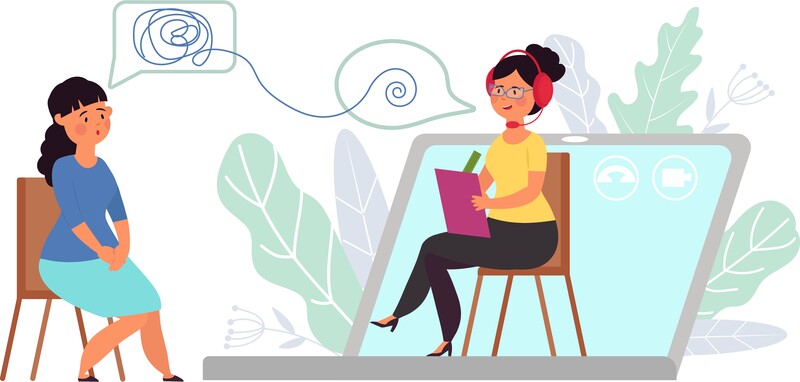Harnessing Newfound Power and Insights in Mental Health Interventions
Mental health interventions have come a long way over the years, thanks to advancements in research, technology, and a growing understanding of the complexities of the human mind. As mental health professionals continue to gain new insights and tools, it’s crucial to integrate these newfound powers into their practice. This is particularly important in our effort to transform the field of mental health[1]. In this article, we’ll explore how clinicians can leverage the latest discoveries to provide more effective and empathetic mental health support.
Personalized Treatment Plans and Culturally Humble Care:
One of the most significant shifts in mental health interventions is the move toward personalized treatment plans[2]. With advancements in genetics, neuroscience[3], and data analysis, clinicians can now tailor interventions to an individual’s unique needs. By integrating genetic information, brain scans, and other personalized data, mental health professionals can design treatment plans that are more effective, reducing the need for trial and error in finding the right approach[4]. Cultural humility[5] is another crucial aspect of modern mental health interventions. It is also crucial in personalized treatment plans. Recognizing the diversity of individuals and their unique cultural backgrounds is essential for providing personalized and effective care. Clinicians are to be increasingly trained to understand and respect cultural differences, tailoring interventions to the specific needs of each client. This power to deliver culturally competent care fosters trust and ensures that interventions are relevant and effective.
Telehealth and Digital Interventions, Collaboration and Multidisciplinary Teams, and Mindfulness and Holistic Approaches:
The rise of telehealth and digital interventions has transformed mental health care[6]. The power of technology has allowed for greater access to mental health services, making it easier for individuals to seek help. Clinicians can now conduct therapy sessions via video conferencing, and mobile apps offer tools for managing anxiety, depression, and stress. Integrating these technologies into practice expands the reach of mental health interventions and empowers clients to take an active role in their well-being.[7]
To enhance this, mental health professionals are to harness the power of collaboration and multidisciplinary teams. In today’s complex world, a single approach may not be enough. This collaborative approach enhances the power of interventions by addressing multiple aspects of a client’s well-being.[8]
Incorporating mindfulness practices, meditation, and yoga into treatment plans can help clients develop self-awareness, emotional regulation, and resilience.[9] These approaches have been shown to be effective in managing a wide range of mental health conditions, including anxiety, depression, and trauma.
In Conclusion:
The field of mental health interventions is evolving rapidly, offering clinicians new powers and insights to better serve their clients. By embracing personalized treatment plans, integrating technology, adopting holistic approaches, and practicing cultural competence, we can harness the full potential of modern interventions for a transformation of mental health that works for everyone. Collaboration with multidisciplinary teams further strengthens their ability to address the complex needs of clients, resulting in more effective and empathetic mental health support. As the field continues to advance, let us remain open to new discoveries and embrace the power of innovation in our practice, as part of the transformation that we all are working toward.
What’s Next:
- Enroll in our 23-week certificate course, Social Work Power. It’s never too late! Click now to join us and set free the powerful Social Worker within you!
- Tell as many of your social work colleagues as possible about the SWEET movement on Transforming Mental Health through Social Work.
- Be on the lookout for the next article in this series.
[1] Thornicroft, Graham, et al. “Evidence for effective interventions to reduce mental-health-related stigma and discrimination.” The Lancet 387.10023 (2016): 1123-1132.
[2] Ng, Mei Yi, and John R. Weisz. “Annual research review: Building a science of personalized intervention for youth mental health.” Journal of Child Psychology and Psychiatry 57.3 (2016): 216-236.
[3] Ross, David A., et al. “An integrated neuroscience perspective on formulation and treatment planning for posttraumatic stress disorder: an educational review.” JAMA psychiatry 74.4 (2017): 407-415.
[4] Chorpita, Bruce F., and Eric L. Daleiden. “Structuring the collaboration of science and service in pursuit of a shared vision.” Future Work in Clinical Child and Adolescent Psychology. Routledge, 2018. 13-28.
[5] Stubbe, Dorothy E. “Practicing cultural competence and cultural humility in the care of diverse patients.” Focus 18.1 (2020): 49-51.
[6] Philippe, Tristan J., et al. “Digital health interventions for delivery of mental health care: systematic and comprehensive meta-review.” JMIR mental health 9.5 (2022): e35159.
[7] Comer, Jonathan S. “Introduction to the special series: Applying new technologies to extend the scope and accessibility of mental health care.” Cognitive and Behavioral Practice 22.3 (2015): 253-257.
[8] Supper, I. O. M. C. Y. L., et al. “Interprofessional collaboration in primary health care: a review of facilitators and barriers perceived by involved actors.” Journal of public health 37.4 (2015): 716-727.
[9] Butterfield, Nicole, et al. “Yoga and mindfulness for anxiety and depression and the role of mental health professionals: a literature review.” The Journal of Mental Health Training, Education and Practice 12.1 (2017): 44-54.







